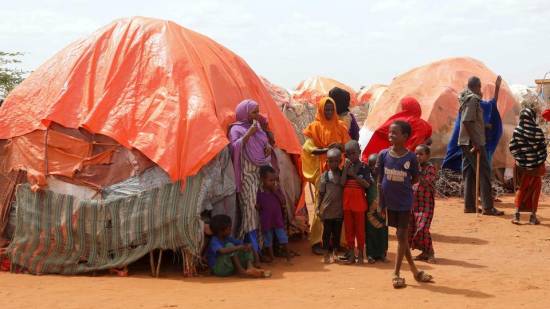More than 50 million face acute food insecurity across east Africa
More than 50 million people across the East African region are expected to face acute food insecurity this year.
Intergovernmental Authority on Development, or IGAD, warned on Friday that some 300,000 in Somalia and South Sudan are projected to be under full-blown famine conditions.
The assessment by IGAD is one of the most dire yet as United Nations agencies, humanitarian groups and others continue to raise alarm over the region's food crisis that many say has been largely neglected as the international community focuses on the war in Ukraine.
That assessment applies to seven member states of IGAD, from Djibouti to Uganda.
Samantha Power, the administrator of the United States Agency for International Development, is travelling in East Africa to spotlight the hunger crisis in the region.
In Kenya's capital Nairobi on Friday, Power announced at least $255 million in drought-related humanitarian and development support to Kenya. She is expected to visit Ethiopia and Somalia, where some communities have suffered four consecutive failed rainy seasons.
Power earlier in the week spoke of the need to prevent the global food crisis from becoming a catastrophe, announcing $1.2 billion in funding that includes immediate food assistance for people in Ethiopia, Somalia and Kenya.
Export restrictions
In addition to immediate humanitarian aid, the international community must sustain investment in global agriculture and undertake concerted diplomacy “so that we mobilise more resources from donors, avoid export restrictions that can exacerbate the crisis, and lessen the burden on poor countries,” Power said in a speech Monday at the Center for Strategic and International Studies in Washington.
Aid groups and other watchdogs have been calling for more funds to be devoted to East Africa after the war in Ukraine grabbed the world's attention and money./agencies


